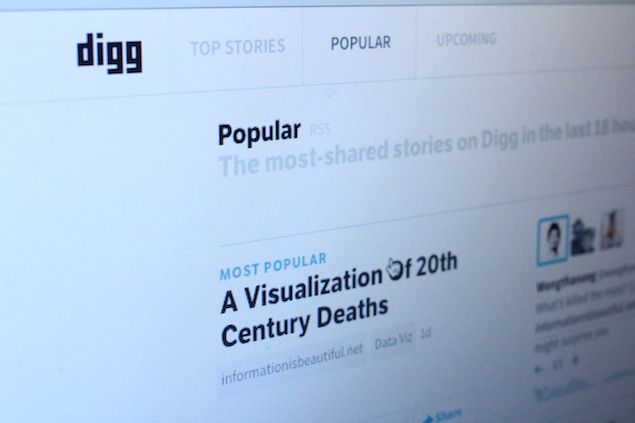Last week, the social news aggregator Digg sent a survey to 18,000 people interested in its upcoming Google Reader replacement. From the 8,000 people who responded, Digg has gathered some interesting data and consequently dropped word of a few features coming to the Reader replacement.
Most notably, Digg found that 40 per cent of those who responded are willing to pay for a Google Reader replacement. In a blog post discussing the news, Digg didn't go into specifics on what this means for pricing. What seems to make most sense is a paid option that removes ads and offers other premium features, while offering a limited free version to the masses. But for now, Digg admitted: "We're not totally sure how pricing will work."
Other survey data revealed that 75 per cent of the responders used email to share links, while Facebook and Twitter fell at about 55 per cent. Digg announced on Monday that it wouldn't leave any social networks out to dry in its Reader replacement, and that Facebook, Twitter, Google+, Tumblr, Pinterest and Path sharing will be present. As for read it later services, Digg says it will support Pocket, Instapaper, Evernote and Readability.
The most interesting tidbit from Digg's blog post on Tuesday was word that the beta of Digg will be available in June. This will cut it pretty close to the 1 July death of Google Reader. Digg has previously hinted that its Reader replacement will focus on simplicity, speed, synchronisation and the ability to import.
The Digg team - Betawork staff who acquired Digg - already has a lot of experience in the web aggregation sector. In 2010, Betaworks launched a product called News.me, which aimed to deliver news in a digestible format. When Betaworks purchased Digg, it took features from News.me and packaged together what Digg is today in short time. We suspect its team can handle a solid Reader replacement.

